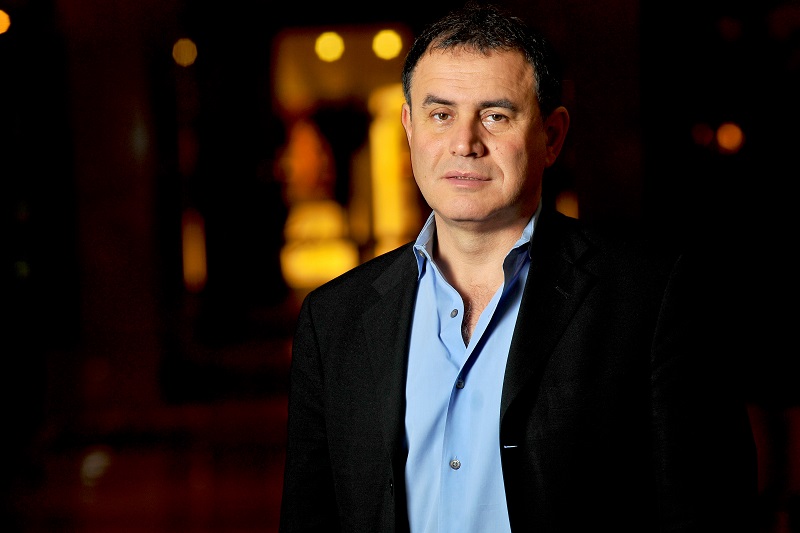“The inevitable collapse”; Find out what Nouriel Roubini thinks about the global economy with Investing.com
2 min read

Written by Alessandro Albano
Investing.com – Nouriel Roubini, renowned economist and professor emeritus at New York University, has gained notoriety for his somewhat pessimistic predictions about the state of the global economy and financial markets. But your opinion essay on Project SyndicateIts headline “The Inevitable Collapse” went further, saying that the globalized world would suffer an inevitable collapse within a few months, which not even central banks would be able to avoid.
“The mother of all crises is coming, and there is not much the authorities can do,” wrote the economist.
In his arguments, Roubini refers to the indebtedness data, which he describes as “astounding”. In his words: “Worldwide, total public and private sector debt as a percentage of GDP has grown from 200% in 1999 to 350% in 2021. The ratio has now reached 420% in advanced economies and 330% in China. In the United States, it’s 420%, which is a higher number than it was during the Great Depression and post-World War II.”
This excess debt has been going on for a long time and, according to the article, kept low interest rates on “insolvent zombies”, such as “households, businesses, banks, parallel financial institutions, governments and even entire countries” during the 2008 crisis and the Covid years.
But now inflation, fueled by the same ultra-loose fiscal, monetary and credit policies, has ended the “rebirth of the financial dead”, in Roubini’s assessment. With central banks forced to raise interest rates, “zombies are facing a sharp increase in the cost of servicing their debt.”
This drastic change represents a “triple whammy”, in which inflation actually deteriorates households’ real incomes and reduces the value of their assets, such as real estate and financial assets. “The same is true for fragile and highly indebted corporations, financial institutions, and governments: they face sharply rising credit costs, falling income and income, as well as a decline in the value of their assets, all at the same time.”
In contrast to the aforementioned crises, the policies of extreme laxity can no longer be applied, because they will throw more fuel into the fire of inflation, and this, as the economist points out, will lead to a deep and prolonged recession, as well as a serious financial crisis. .
“As asset bubbles burst, debt service rates rise, and inflation-adjusted household, corporate, and government incomes decline, the economic crisis and financial meltdown will return to positive results,” the article predicts.
Undoubtedly, Roubini writes, “advanced economies that have borrowed in their own currencies can use a cycle of unpredictable inflation to lower the real value of some long-term fixed-rate debt. Faced with the unwillingness of governments to raise taxes or cut spending to reduce their deficits, it will be considered Again to monetize central bank deficits as the path of least resistance. But it’s impossible to fool all the people all the time.”
Roubini concludes that “the stagflationary debt crisis can be delayed but not avoided”. Project Syndicate🇧🇷

“Devoted food specialist. General alcohol fanatic. Amateur explorer. Infuriatingly humble social media scholar. Analyst.”




